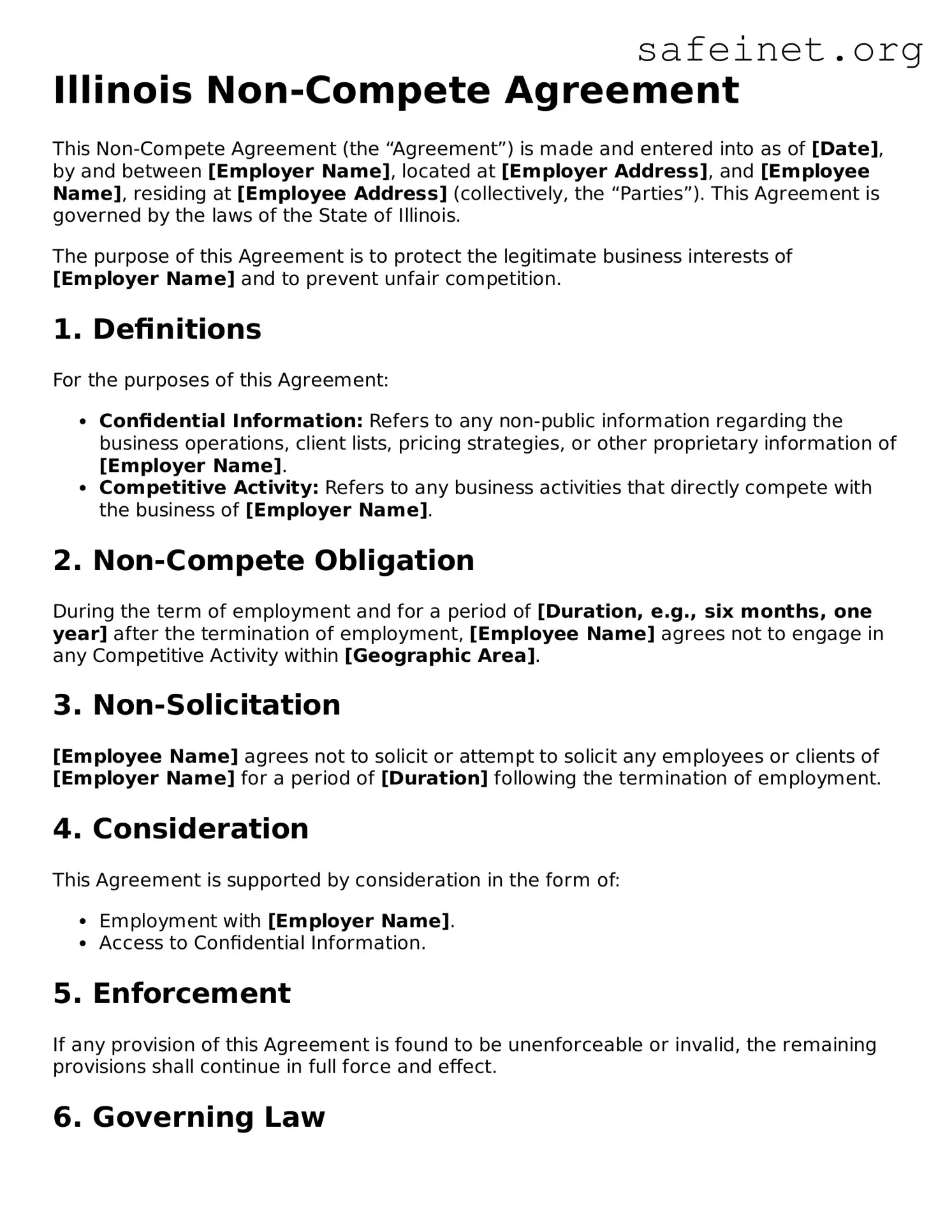Illinois Non-Compete Agreement
This Non-Compete Agreement (the “Agreement”) is made and entered into as of [Date], by and between [Employer Name], located at [Employer Address], and [Employee Name], residing at [Employee Address] (collectively, the “Parties”). This Agreement is governed by the laws of the State of Illinois.
The purpose of this Agreement is to protect the legitimate business interests of [Employer Name] and to prevent unfair competition.
1. Definitions
For the purposes of this Agreement:
- Confidential Information: Refers to any non-public information regarding the business operations, client lists, pricing strategies, or other proprietary information of [Employer Name].
- Competitive Activity: Refers to any business activities that directly compete with the business of [Employer Name].
2. Non-Compete Obligation
During the term of employment and for a period of [Duration, e.g., six months, one year] after the termination of employment, [Employee Name] agrees not to engage in any Competitive Activity within [Geographic Area].
3. Non-Solicitation
[Employee Name] agrees not to solicit or attempt to solicit any employees or clients of [Employer Name] for a period of [Duration] following the termination of employment.
4. Consideration
This Agreement is supported by consideration in the form of:
- Employment with [Employer Name].
- Access to Confidential Information.
5. Enforcement
If any provision of this Agreement is found to be unenforceable or invalid, the remaining provisions shall continue in full force and effect.
6. Governing Law
This Agreement shall be governed by and construed in accordance with the laws of the State of Illinois.
7. Entire Agreement
This Agreement constitutes the entire understanding between the Parties and supersedes all prior discussions, agreements, or understandings.
IN WITNESS WHEREOF, the Parties hereto have executed this Non-Compete Agreement as of the date first above written.
______________________________ [Employer Name]
By: ____________________________
Title: _________________________
Date: __________________________
______________________________ [Employee Name]
Signature: _____________________
Date: __________________________
